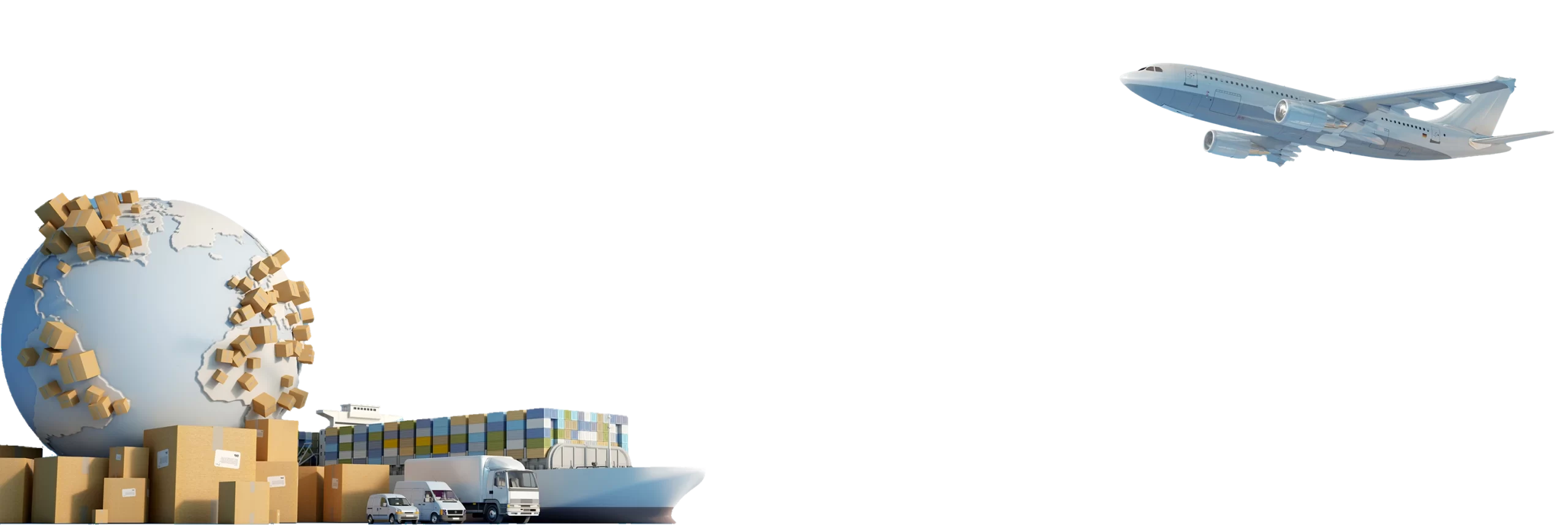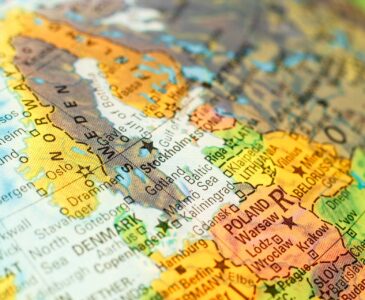Imagine this: Sunset. You’re drinking a cocktail in a beach bar. Then the elegantly dressed man sits next to you and says, “My name is Bond. James Bond.” Though your life after moving to the Cayman Islands will most likely be much more prosaic than this, such is the image of this Caribbean archipelago in the public imagination. Dodgy dealings and tax evasion aside, the Caymans are a perfect place for those looking for a laid-back lifestyle. So grab a drink (colorful and with an umbrella) and join us on tour around life and everything else in the Caymans.
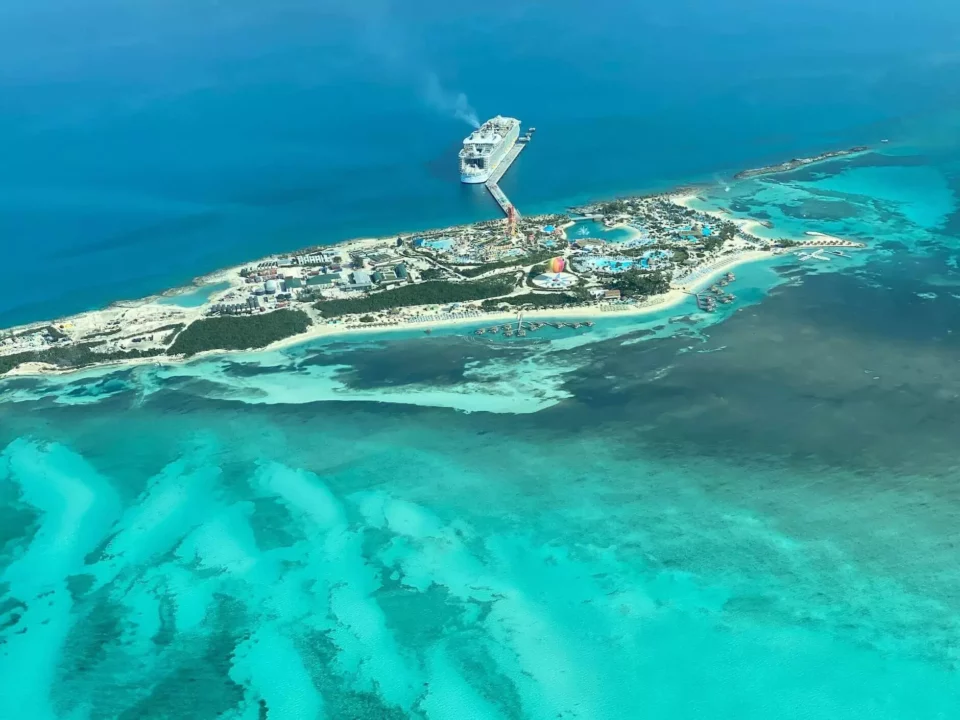
The Cayman Islands is the autonomous British Overseas Territory, consisting of three islands (Grand Cayman, Lesser Cayman, and Cayman Brac) sitting between Cuba, Jamaica, and Mexico. Its official language is English, so there’ll be no immediate need to break the language barrier. Still, some tips for learning a new language may come in handy due to the existence of local dialects as well as immigrants from Latin America. The official currency is the Cayman Islands dollar or KYD, and you can expect to get 1.2 USD for one KYD. Still, in many places, people will accept US dollars, too. The capital city is George Town (not to be mistaken for Georgetown in the fellow Commonwealth country Guyana).
#1 Get to Know the Spirit of the Place You’ll Call Home
When Columbus first came here in the 16th century, the archipelago was uninhabited and the explorer named it Las Tortugas, for the turtles that lived there at the time. Hunting put an end to them in the following years, and their place in the name was taken by also native caiman alligators. Still, turtles are honored on the territory’s flag until this day.
There’s no denying that living overseas in the Caymans ought to have an exotic and even somewhat rascally feeling to it. Dealings from the Pandora Papers are just the last in the line of shady business going on in that part of the Greater Antilles. Soon after it was permanently settled, the atolls became a haven for pirates. As a sort of (willing or not) testament to that spirit, even the territory’s highest point is called the Bluff.
Nowadays, the archipelago is one of the most renowned offshore destinations, with registered companies outnumbering the residents (the archipelago is home to some 71,000 people). It is a safe place (especially when compared to some of the other island nations in the region,) and a chance of becoming a victim of a violent crime is generally low. Therefore it may be said it’s among the best places to live abroad with family. Locals actually take great pride in the “Caymankind” – the sense of community and the welcoming spirit combined, which puts the archipelago on par with the friendliest countries in the world.
Bring Light Clothes With You
As you may guess, you won’t need to worry about warm clothes when deciding what to pack for relocating abroad. However, keep a waterproof jacket and shoes. Rain falls from May to October, but the temperature never drops below pleasant warmth. In a way, it’s very much like relocating to the Bahamas. Another similarity is that the archipelago is often in the way of tropical storms, so be prepared for some work on protecting your house after an international moving company does its magic with packing service and relocates you.
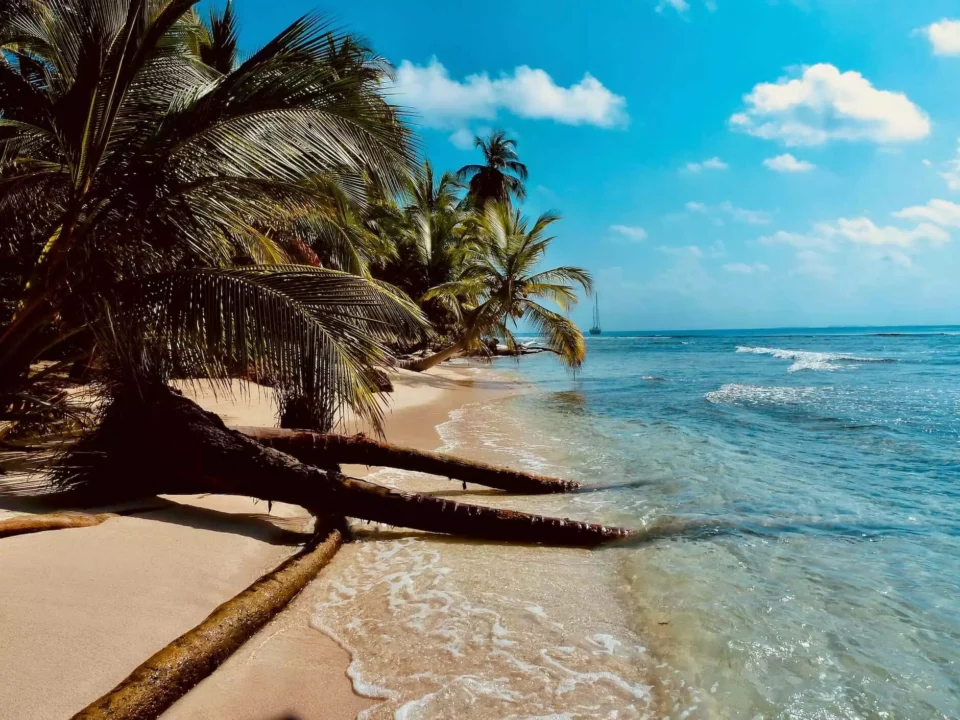
#2 Moving to the Cayman Islands Requires Paperwork – Be Ready for It
While coronavirus pandemic interrupted many things, relocations abroad continued. And the administrative part of it only grew more complicated due to the classification and reclassification of countries depending on the situation with the disease. Nonetheless, the first point on each moving abroad checklist remains the same – learning about requirements and conditions for entry and gathering all the documents needed for international travel.
The first and most important of those is a passport. Then, depending on the reasons for moving overseas, you should get the appropriate visa and/or work permit. They are all valid for different periods of time and issued according to the category of a would-be immigrant. To learn more about the documentation requirements, contact the nearest British consulate or visit the website of the Caymans immigration department.
Moving to the Cayman Islands From the US for Good?
If you wish to spend years or your entire life in the Caymans, you can apply for permanent residency. Basic requirements for that are living in the territory for eight years or being married to or a child of a citizen or permanent resident. If you think that’s complicated, know that the procedure for getting the permit to live and work in the Caymans is different if you’re relocating to another country for love than if you simply wish to be employed.
After you’ve been a permanent resident for a certain amount of time (and upon fulfilling other criteria), you can earn the Caymanian Status (or the Right to be Caymanian). That would basically make you a citizen of the British Overseas Territory.
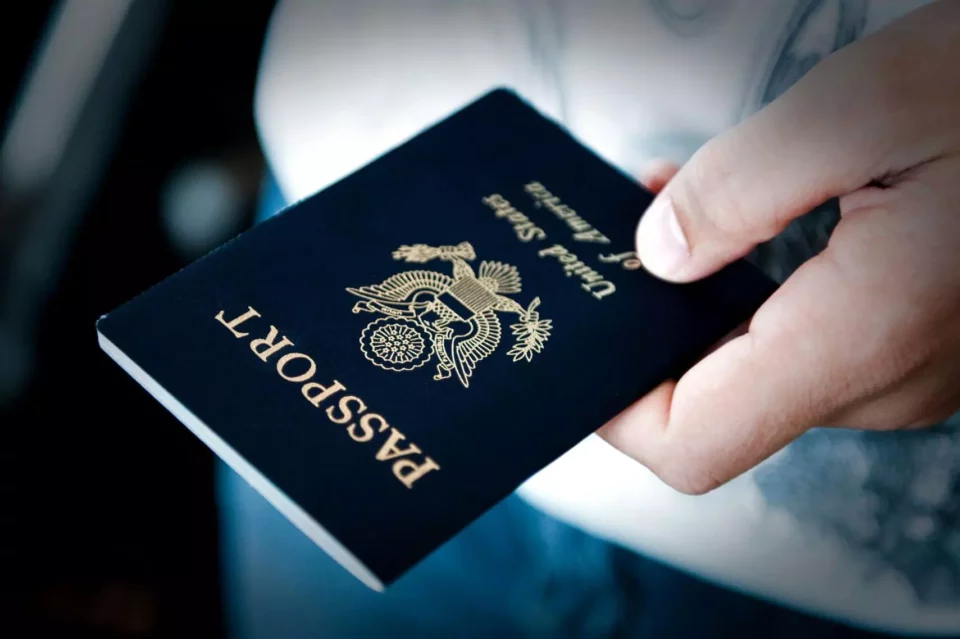
#3 Best Places to Live in the Caymans
Being small and sparsely populated, the archipelago residents mostly live in the capital, George Town. Other larger settlements are West Bay and Bodden Town, named after one of the first settlers. The capital city is the seat of all the government institutions and the center of the two main industries in the Caymans – tourism and finance.
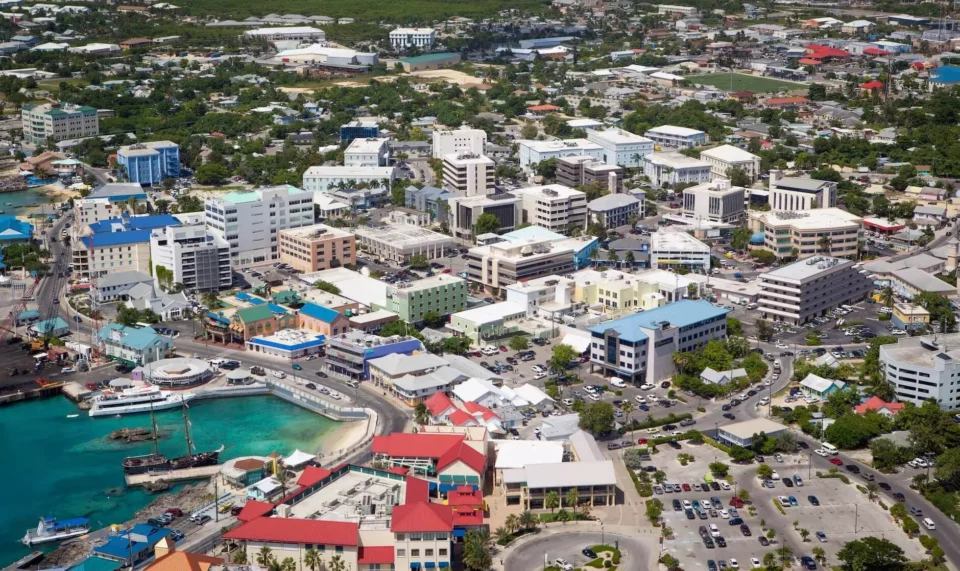
#4 You Gotta Make Money to Spend Money
One of the main staples of a good Caymanian is financial independence, and investors are more than welcome to the Territory. In fact, investing is one of the roads to permanent residency. You’d never guessed that, right?
Be that as it may, one of the usual answers to the dilemma of how to live abroad is to get well-paid work. And that’s not very difficult in the Caymans, even though the unemployment rate is low. According to the specialized website Numbeo, on average, Caymanians net 3,900 KYD (around 4,700 USD) every month. Not surprisingly (again,) the highest earners are bankers, IT guys and gals, and providers of legal services (commonly known as attorneys).
And in case you hit the jackpot and your company wishes to transfer you to the archipelago, make sure that salary is among the relocation questions you’ll ask the employer. Salary, and whether they’d be willing to cover your relocation expenses (a storage service, for example).
For more info on working in this exotic location, check out the following video.
#5 What You Have to Spend
There’s no free lunch, even in the Caymans. And the cost of that proverbial meal here is high, higher than in the US. And there’s a simple reason for that, besides more than decent income. While you may not be relocating across the world, and you’ll be closer to the US mainland than if you were moving to Hawaii, it’s still an island territory. As you probably know, the cost of living in Hawaii is notoriously high due to the need to import nearly everything, and it’s no different in the Caymans. It goes for all kinds of consumer products, from groceries to household goods.
Cost of Living in the Caymans in Terms of Housing
So, how to live in another country? While life on the beach, in a house made of planks and palm leaves, sounds attractive and cool, it may not be the best choice in the Caribbean. Storms, you know. So, you’ll need a proper home. Luckily, renting and buying real estate in the Caymans is pretty straightforward and without much ado, albeit at often exorbitant prices.
Housing prices in the Caymans are higher than the US ones. According to Numbeo, you’ll have to splash, on average, from 1,450 to 4,460 USD, depending on the apartment’s size and location. If you opt for buying, the average square foot price varies from 870 to 3,475 USD, again depending on where you wish to live. Basic utilities come at $300 a month.
Taxes and Legends About Them
Perhaps the biggest culture shock every decent American will experience when settling here is the virtual absence of taxes. Caymanians suffer no sales taxes, as well as those on income, capital gains, and inheritance. Corporate tax is, of course, also non-existent.
There is a legend that tells how the Caymans came to be a tax haven. It says that in the final years of the 18th century, islanders saved and helped the sailors from a group of ships that struck a reef in the sea. Since one of his cousins was on a ship, grateful British King George III promised that they would never pay taxes. Now, there’s an interesting story to help you keep in touch with friends in the US.

#6 Quality of Life or the Amenities in the Caymans
When becoming a Caymanian, you expect only the best in terms of amenities and services, right? And you’ll have them. At a price.
Healthcare is US Style
All residents of the Caymans are obliged to have health insurance, and it is paid for by the employers. Healthcare facilities are top-notch and numerous (considering the size of the archipelago). People in need can be treated in several hospitals, and, according to some statistics, 4.5 doctors serve every 1,000 Caymanians. There is, of course, the option of private health insurance, which is costlier but in some ways more reliable in terms of waiting times.
Schools are Great, But There’s a Catch
Children in the Caymans can expect to get an education of the highest quality, with both British and US programs available. Students attending a public school (any of them) regularly excel in international tests. And they are free for the citizens of the territory. But, the catch is that children of residents can’t attend them.
So the expats are left with paying for private school for their kids. Education in those is top-notch, too, but the application procedure can last for a while, so we recommend beginning with the process a bit before you contact an overseas moving company.
How to Get Around
Transportation options may be somewhat limited, but they serve the purpose. There are three airports (one on each island) and two ports from which you can get to the US and other places. Grand Cayman is also served by minibusses.
When it comes to the road network and driving, there are a few hundred miles of paved roads, and there are things to see along the way, so it would be reasonable to use an overseas car shipping service. Still, be prepared for driving in the British way, on the left side, and to pass a test in order to get a local driving license. For more info on the regulations regarding driving, check the local government department website.
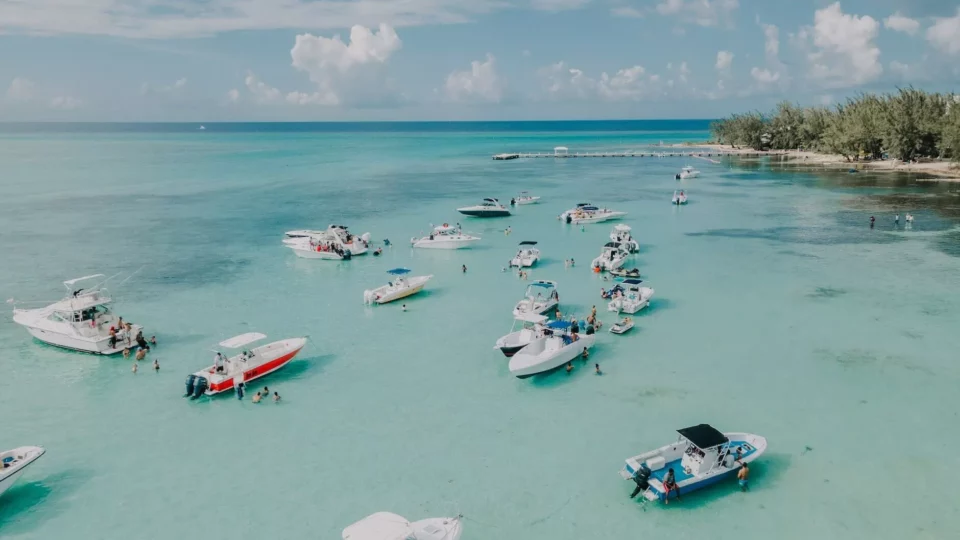
#7 Expat Guide to the Best Things to Do in the Caymans
Dealing with an overseas shipping company is stressful per se. But nothing helps relieve moving stress and adjusting to a new country as fun activities. And the Caymans aren’t missing on those. Most are outdoor, of course, but restaurants and clubs are there for folks who don’t enjoy sports, walking, swimming, diving, and alike.
Those who do can engage in golf, rugby, soccer, or tennis, among other options. If you relocate with a dog, there will be hours of joyful running along the sand for him (and you, since the animal has to be on a leash while on a beach). Still, be mindful of the fact that the Caymans are rabies-free and require proof of vaccinations before your furry friend can enter its territory, much like when relocating with pets to Hawaii.
Other than that, in and around West Bay sit some of the most popular attractions in the Caymans, such as Cayman Turtle Farm and Cayman Motor Museum. Of course, due to the islands’ past, many shipwrecks lay around to be seen.
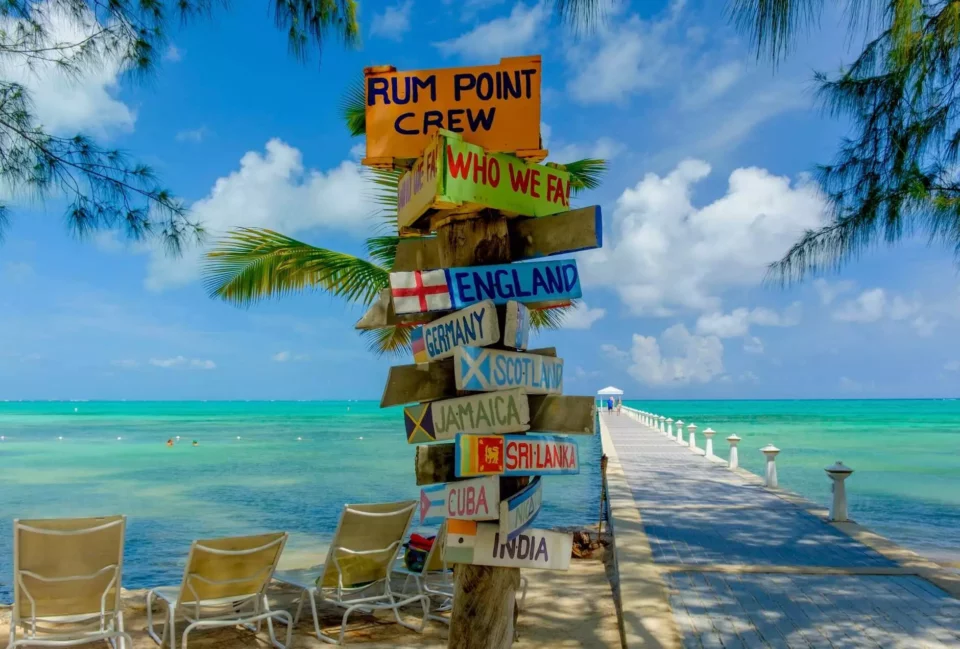
Tropical Paradise is Waiting for You
Now that you have learned about one of the best places to live abroad and one of the most exotic destinations in the world (in every sense) all that’s left is to contact reliable international movers. Believe us when we say that shipping overseas without the help of professional international moving services is not so pleasant experience (to say the least). If you hire movers, there will be more than enough time to get in touch with the US expat community in the Caribbean archipelago and prepare for a new life in the tropics.

